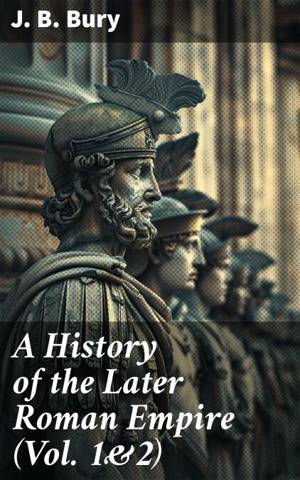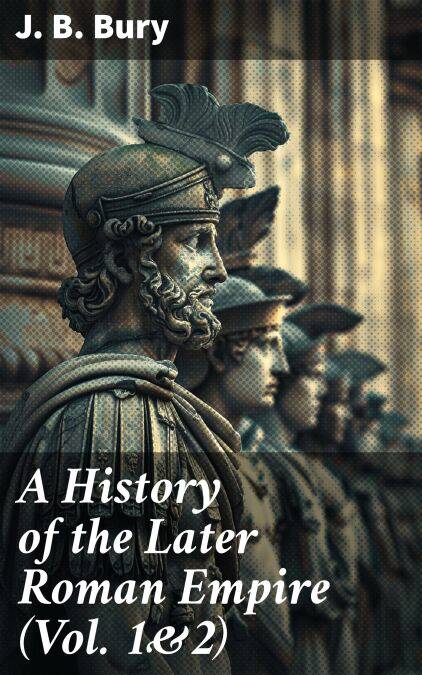
- Retrait gratuit dans votre magasin Club
- 7.000.000 titres dans notre catalogue
- Payer en toute sécurité
- Toujours un magasin près de chez vous
- Retrait gratuit dans votre magasin Club
- 7.000.0000 titres dans notre catalogue
- Payer en toute sécurité
- Toujours un magasin près de chez vous
A History of the Later Roman Empire (Vol. 1&2) EBOOK
From the Death of Theodosius I to the Death of Justinian - German Conquest of Western Europe & the Age of Justinian
J. B. Bury
Ebook | Anglais
1,99 €
+ 1 points
Format
Description
J. B. Bury's "A History of the Later Roman Empire" (Volumes 1 & 2) serves as a comprehensive examination of the social, political, and military transformations of the Roman Empire from 284 AD until its eventual decline. Bury employs a meticulous analytical approach, blending rigorous primary source research with a narrative style that is both engaging and informative. His exploration delves into the intricacies of imperial administration, the rise of external threats, and the impact of Christianity, meticulously contextualizing each event within the broader tapestry of Roman history and contemporary scholarship. As an eminent historian and scholar of classical studies, J. B. Bury's academic background, notably his tenure at Trinity College, Dublin, and his deep engagement with the classical tradition, profoundly influenced his writing. His previous work in historiography and dedication to historical accuracy underscore Bury's intent to present a nuanced, multifaceted view of a critical era in Western history. Through his writings, Bury seeks to illuminate the complexities of the Roman Empire's later years, fostering a richer understanding of its legacy. I highly recommend Bury'Äôs work to those intrigued by the Roman Empire's transition and decline, as it offers both depth and clarity, making it an essential addition to the libraries of students and scholars alike. The work's scholarly rigor, combined with its eloquent prose, provides readers with an invaluable resource for understanding the multifarious dynamics at play during this pivotal period.
Spécifications
Parties prenantes
- Auteur(s) :
- Editeur:
Contenu
- Nombre de pages :
- 992
- Langue:
- Anglais
Caractéristiques
- EAN:
- 8596547685388
- Date de parution :
- 02-12-23
- Format:
- Ebook
- Protection digitale:
- Digital watermarking
- Format numérique:
- ePub

Les avis
Nous publions uniquement les avis qui respectent les conditions requises. Consultez nos conditions pour les avis.






